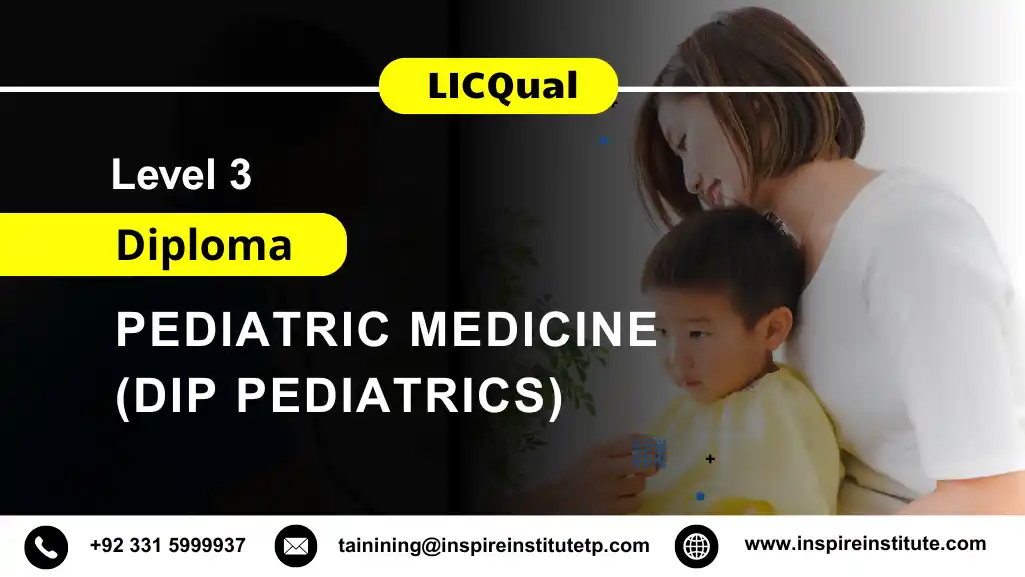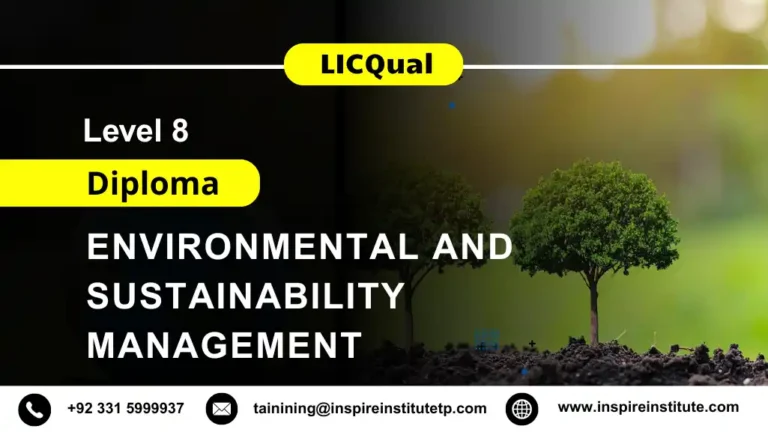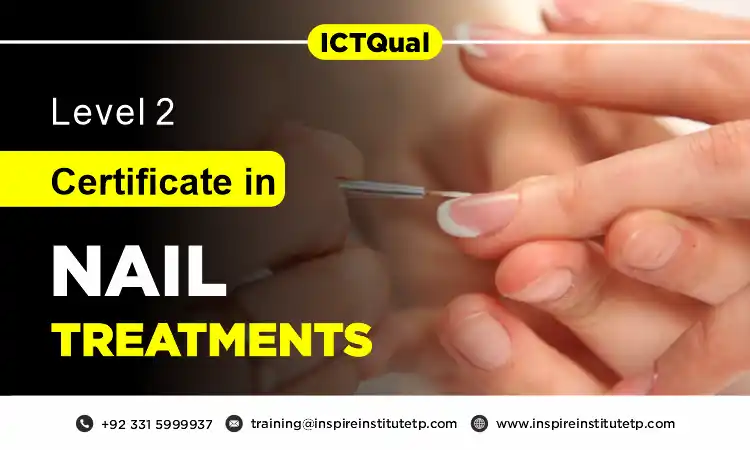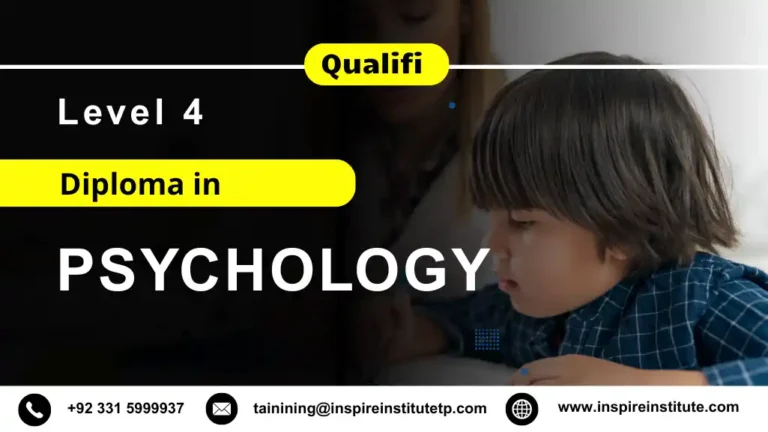LICQual Level 3 Diploma in Pediatric Medicine (Dip Pediatrics)
The LICQual Level 3 Diploma in Pediatric Medicine (Dip Pediatrics) is a highly valuable qualification designed for individuals who wish to build a strong foundation in child healthcare and medical practices related to pediatrics. Pediatric medicine plays a crucial role in safeguarding the health and development of infants, children, and adolescents, making this course a vital step for aspiring healthcare professionals. With the growing demand for skilled pediatric practitioners worldwide, this diploma offers learners an excellent opportunity to enter a rewarding and impactful field.
This Level 3 Diploma in Pediatric Medicine provides comprehensive coverage of essential concepts such as child development, pediatric anatomy and physiology, nutrition, immunization, and the diagnosis and management of common pediatric illnesses. The program’s purpose is to equip learners with the theoretical knowledge and practical understanding required to support the well-being of children in clinical, hospital, and community healthcare environments. It serves as an entry point for further studies or careers in medical, nursing, and allied health disciplines.
By enrolling in the LICQual Diploma in Pediatric Medicine, learners will gain vital skills in assessing, monitoring, and managing children’s health conditions. The course emphasizes practical applications that mirror real-world medical practices, ensuring participants are well-prepared to handle pediatric emergencies, support preventive healthcare strategies, and contribute effectively to multidisciplinary medical teams. These outcomes make the qualification relevant for those aiming to progress into more advanced pediatric or healthcare studies.
One of the key strengths of the LICQual Level 3 Pediatric Medicine Diploma is its focus on developing a strong balance between theory and practice. Learners will not only study core medical principles but also gain insights into ethical considerations, patient communication, and evidence-based healthcare approaches tailored to children. This comprehensive learning approach enhances both professional competence and employability in pediatric healthcare settings.
The Dip Pediatrics course is suitable for individuals seeking to start a career in child healthcare, medical assistants aiming to specialize in pediatrics, and professionals who want to strengthen their pediatric knowledge. The diploma’s scope extends beyond academic knowledge to real-world applications, making it an excellent qualification for those pursuing roles in hospitals, clinics, non-governmental organizations, and community healthcare centers. By completing this diploma, learners demonstrate their commitment to improving child health and medical care standards.
In summary, the LICQual Level 3 Diploma in Pediatric Medicine (Dip Pediatrics) is a career-focused program that opens pathways into pediatric healthcare and advanced studies. It is ideal for learners passionate about children’s well-being and determined to make a positive impact in the medical field. With its comprehensive curriculum, practical insights, and global relevance, this diploma equips learners with the expertise needed to thrive in the healthcare sector and contribute meaningfully to pediatric medicine.
Why Choose this Qualification
The LICQual Level 3 Diploma in Pediatric Medicine (Dip Pediatrics) is a specialized qualification designed to build essential knowledge and skills for those aspiring to work in child healthcare. Pediatric medicine is a critical field of study that focuses on the medical care, growth, and well-being of infants, children, and adolescents. Choosing this diploma not only strengthens your academic and professional foundation but also prepares you for a meaningful career where you can make a lasting difference in young lives.
Key Reasons to Choose this Qualification
Comprehensive Understanding of Pediatric Medicine
- Gain an in-depth foundation in pediatric anatomy, physiology, and child development.
- Learn about the diagnosis and management of common childhood diseases and conditions.
- Study preventive healthcare practices such as immunization and nutrition management.
- Understand the principles of growth monitoring and developmental milestones in children.
Practical Skills for Real-World Healthcare
- Acquire hands-on knowledge to assess and monitor pediatric patients effectively.
- Learn essential techniques for handling pediatric emergencies and first aid.
- Apply evidence-based practices in managing acute and chronic illnesses in children.
- Develop problem-solving abilities in clinical case scenarios.
Career-Ready Qualification
- Enhance employability with recognized pediatric healthcare skills.
- Prepare for entry-level roles in hospitals, clinics, and community healthcare centers.
- Build a strong foundation for progressing into advanced medical and nursing studies.
- Demonstrate professional competence through an accredited international qualification.
Strong Focus on Child-Centered Care
- Develop communication skills for interacting with children and their families.
- Learn to apply empathy and ethical practices in pediatric healthcare.
- Understand cultural and social considerations in child health management.
- Gain confidence in supporting children through medical treatments and preventive care.
Internationally Recognized Qualification
- Earn a qualification awarded by LICQual, known for its high academic standards.
- Open opportunities for global healthcare careers in pediatric and medical sectors.
- Gain credibility and recognition among employers, peers, and professional bodies.
- Use this diploma as a stepping stone for advanced healthcare certifications worldwide.
Flexible and Structured Learning
- Benefit from a structured curriculum designed for progressive learning.
- Learn at your own pace with assignment-based assessments that test understanding.
- Access study materials and resources tailored to pediatric healthcare.
- Balance study with professional or personal commitments.
Ethical and Professional Development
- Gain insights into professional codes of conduct in pediatric medicine.
- Understand patient confidentiality, rights, and safeguarding policies for children.
- Learn to make responsible decisions in complex healthcare situations.
- Develop leadership qualities for future growth in healthcare roles.
Contribution to Society and Child Well-Being
- Play a direct role in improving child health outcomes in communities.
- Support global initiatives for better maternal and child healthcare.
- Build a career with both personal satisfaction and professional impact.
- Contribute to reducing childhood illness and mortality through skilled practice.
The LICQual Level 3 Diploma in Pediatric Medicine (Dip Pediatrics) is more than just an academic qualification; it is a pathway to a rewarding career in healthcare. With its blend of theoretical knowledge, practical skills, ethical training, and global recognition, this diploma empowers learners to make a significant impact in the field of pediatric medicine. By choosing this qualification, you are not only investing in your professional growth but also in the future health and well-being of children worldwide.
Course Overview
LICQual UK Awarding Body
Average Completion Time:
4-12 Months
Study Units: 6 Units
Evidence & Assignment Based
Mandatory Units
Who Should Take This Course
The LICQual Level 3 Diploma in Pediatric Medicine (Dip Pediatrics) is a specialized qualification designed for individuals who are passionate about child healthcare and aspire to build a strong foundation in pediatric medicine. Pediatric care is one of the most important fields in healthcare, requiring both technical knowledge and compassionate practice. This diploma provides the skills and expertise necessary for learners to enter healthcare professions or advance to higher-level studies, making it a suitable choice for a wide range of learners.
This Course is Suitable For
Aspiring Pediatric Healthcare Professionals
- Build a strong understanding of pediatric anatomy, physiology, and child development.
- Learn to identify and manage common childhood illnesses and health challenges.
- Develop skills to assess, diagnose, and monitor children’s health conditions.
- Gain confidence in applying pediatric medical knowledge in real-world healthcare settings.
Nursing and Healthcare Assistants
- Enhance knowledge in child-centered care and pediatric patient support.
- Improve practical skills in monitoring vital signs and administering first aid for children.
- Strengthen communication techniques with children and their families.
- Acquire internationally recognized skills to advance within healthcare careers.
Medical Students and Early Career Practitioners
- Use this diploma as a foundation for further pediatric or general medical studies.
- Gain early exposure to pediatric medical practices, ethics, and professional standards.
- Build the ability to apply evidence-based medicine in child healthcare.
- Develop critical problem-solving and decision-making skills in clinical scenarios.
Allied Health Professionals
- Strengthen pediatric knowledge to support multidisciplinary healthcare teams.
- Learn preventive approaches such as vaccination, nutrition, and growth monitoring.
- Improve patient care delivery through applied pediatric medicine principles.
- Gain skills that add value to existing healthcare qualifications and roles.
Community Health Workers and Caregivers
- Acquire essential skills to support child health within community and local settings.
- Learn to recognize early signs of illness in infants and children.
- Develop preventive healthcare practices for promoting child well-being.
- Enhance ability to deliver health education to parents and guardians.
Individuals Seeking a Career Change into Healthcare
- Begin a professional journey in healthcare with a recognized qualification.
- Gain specialized knowledge in pediatrics without needing prior medical background.
- Acquire transferable skills applicable to hospitals, clinics, and NGOs.
- Build confidence to progress into advanced healthcare education.
International Learners Aiming for Global Healthcare Careers
- Earn a globally recognized diploma that enhances employability worldwide.
- Gain knowledge and skills that meet international pediatric healthcare standards.
- Strengthen professional profiles for roles in hospitals, clinics, and community health centers abroad.
- Open pathways for higher education and advanced pediatric studies globally.
Volunteers and NGO Workers in Child Health Programs
- Develop expertise to contribute effectively to child health and welfare projects.
- Learn the essentials of pediatric medicine relevant to fieldwork and outreach programs.
- Improve ability to deliver support services in maternal and child healthcare initiatives.
- Gain confidence in making a positive impact on vulnerable communities.
The LICQual Level 3 Diploma in Pediatric Medicine (Dip Pediatrics) is ideal for anyone committed to improving child health and well-being. Whether you are an aspiring healthcare professional, a current practitioner, or someone looking to transition into the medical field, this qualification provides the foundation, skills, and recognition needed to excel in pediatric medicine. By choosing this course, learners position themselves for both career advancement and the opportunity to make a meaningful contribution to the future of children’s healthcare.
Course Benefits
The LICQual Level 3 Diploma in Pediatric Medicine (Dip Pediatrics) provides significant benefits for individuals seeking to build expertise in child healthcare, development, and pediatric medical practices. By combining essential theoretical knowledge with practical applications, this diploma equips learners to deliver high-quality pediatric care, manage common childhood illnesses, and support preventive health strategies. Designed as a flexible, assignment-based programme, it ensures professional development while maintaining academic excellence and relevance in today’s healthcare sector.
Key Benefits of the Course:
- Specialist Knowledge: Gain a solid foundation in pediatric anatomy, physiology, child growth, and development. Learners explore pediatric nutrition, immunization schedules, management of common and acute childhood illnesses, and preventive healthcare approaches. The course also covers ethical and child-centered medical practices, preparing learners to make informed and evidence-based decisions in pediatric care.
- Practical Application: Develop practical skills in assessing children’s health, recognizing developmental milestones, and supporting early diagnosis of health conditions. Learners gain competence in handling pediatric emergencies, administering basic treatments, and applying best practices in hospitals, clinics, and community settings. The programme ensures graduates can apply theory directly to real-world pediatric healthcare.
- Recognised Qualification: Earn a UK-accredited diploma that validates advanced knowledge in pediatric medicine and strengthens professional credibility. This recognition ensures alignment with international healthcare and child medical care standards, making the qualification valuable for careers in hospitals, child healthcare units, NGOs, and educational institutions worldwide.
- Flexible Learning Pathway: Benefit from an assignment-based study model that allows learners to continue professional or personal responsibilities while advancing academically. This flexible approach makes the LICQual Level 3 Diploma in Pediatric Medicine (Dip Pediatrics) ideal for healthcare assistants, medical students, and career changers seeking a structured yet accessible programme.
- Evidence-Based Training: Explore the latest guidelines in pediatric care, nutrition, and preventive medicine, ensuring that learners can adopt child-centered, safe, and effective approaches. Training emphasizes vaccination, growth monitoring, and evidence-driven healthcare interventions that support both individual patients and wider community health outcomes.
- Career Development: Expand career opportunities across hospitals, pediatric clinics, community health centers, schools, and international child welfare organizations. The diploma opens pathways into roles in pediatric support, child healthcare, and allied medical services, as well as further advanced studies in nursing, midwifery, and pediatric medicine.
- Enhanced Child Healthcare Delivery: Contribute to better child health outcomes through early detection, accurate care, and preventive healthcare strategies. Learners acquire the skills to support families, promote wellness, and manage pediatric health challenges, ultimately improving community health and safeguarding future generations.
- Professional Growth: Strengthen clinical knowledge, decision-making, and communication skills needed to interact effectively with children and families. The course also builds professional values such as empathy, ethics, and interdisciplinary collaboration, preparing learners to play a crucial role in pediatric healthcare delivery.
The LICQual Level 3 Diploma in Pediatric Medicine (Dip Pediatrics) equips learners with vital knowledge, practical competence, and a UK-recognised qualification. It empowers healthcare professionals and aspiring practitioners to improve child health outcomes, contribute to public health initiatives, and advance their careers in the rewarding and impactful field of pediatric medicine.
Eligibility Criteria
The LICQual Level 3 Diploma in Pediatric Medicine (Dip Pediatrics) is a UK-accredited programme designed for aspiring healthcare professionals, nurses, caregivers, and community health practitioners who wish to develop a strong foundation in child healthcare, growth, and pediatric medicine. This assignment-based qualification combines essential theoretical knowledge with practical applications, making it ideal for medical students, healthcare assistants, allied health professionals, and individuals looking to specialize in pediatric care. By meeting the entry requirements, learners ensure they are fully prepared to succeed in the programme and apply their knowledge effectively in hospitals, clinics, schools, and community healthcare settings.
Educational Background:
Applicants should hold a recognised healthcare or science-related qualification such as a diploma in healthcare practice, nursing, or an equivalent qualification. Candidates with Level 2 or Level 3 qualifications in healthcare, child development, clinical science, or related fields may also be considered. Equivalent international qualifications will be reviewed on a case-by-case basis to ensure they meet the suitability standards for the programme.
Professional Experience:
While previous experience in pediatric care or general healthcare is beneficial, it is not strictly mandatory. A minimum of one year of healthcare, caregiving, or community health experience is recommended. Applicants with exposure to child healthcare, nursing support, or clinical assistance will find the course particularly valuable, though motivated individuals without direct experience are also encouraged to apply.
Age Requirement:
Learners must be at least 18 years of age at the time of enrolment, ensuring they possess the maturity, responsibility, and commitment required for training in pediatric medicine. This requirement ensures that candidates can engage with both the academic and practical aspects of the qualification effectively.
Language Proficiency:
Since the programme is delivered in English, learners should demonstrate strong reading, writing, and communication skills. A minimum IELTS score of 6.0 or an equivalent qualification is recommended for non-native English speakers. This ensures that learners can complete assignments, engage with course resources, and interact professionally in academic and healthcare contexts.
Technical Requirements:
Applicants should have access to a computer or laptop with a stable internet connection. Basic IT skills are necessary to manage online learning platforms, conduct research, and submit assignments digitally. Familiarity with using word processing tools and accessing digital study resources will support a smoother learning experience.
Required Documents:
Submission of a valid ID or passport, proof of educational qualifications, and evidence of any healthcare or related professional experience (if applicable) is required for registration. Applicants presenting international qualifications may be asked to provide additional documentation for verification.
The Qualification Process
LICQual Level 3 Diploma in Pediatric Medicine (Dip Pediatrics) follows a structured pathway to ensure learners gain comprehensive knowledge, practical skills, and professional competence in community oral healthcare.
Step 1: Self-Assessment
Learners review the entry requirements to confirm eligibility. Candidates with a background in dentistry, oral health, or public health are encouraged to apply.
Step 2: Registration
Complete the registration process by submitting required documents such as proof of qualifications, a valid ID, and payment of enrollment fees.
Step 3: Induction
An induction session is conducted to:
- Verify learner eligibility and documentation.
- Introduce study materials, learning outcomes, and assessment procedures.
Step 4: Learning and Evidence Submission
Learners complete assignments, case studies, and practical exercises demonstrating competence in public health dentistry, community oral health assessment, preventive strategies, and program planning.
Step 5: Feedback and Revision
Assessors review submitted evidence and provide constructive feedback. Learners can revise and resubmit work to meet all required standards.
Step 6: Competence Validation
Final submissions are evaluated to confirm that learners have met all theoretical and practical learning outcomes.
Step 7: Internal Quality Assurance (IQA)
The IQA team reviews the assessment process to ensure accuracy, fairness, and compliance with international standards.
Step 8: External Verification (EQA)
External verifiers validate the authenticity and quality of learner achievements.
Step 9: Certification
Upon successful verification, learners are awarded LICQual Level 3 Diploma in Pediatric Medicine (Dip Pediatrics) , demonstrating advanced proficiency in community oral healthcare and preparing them for professional growth in dental public health, preventive dentistry, and healthcare policy.







